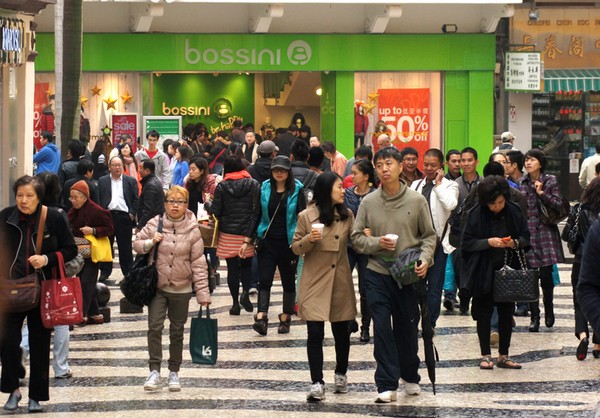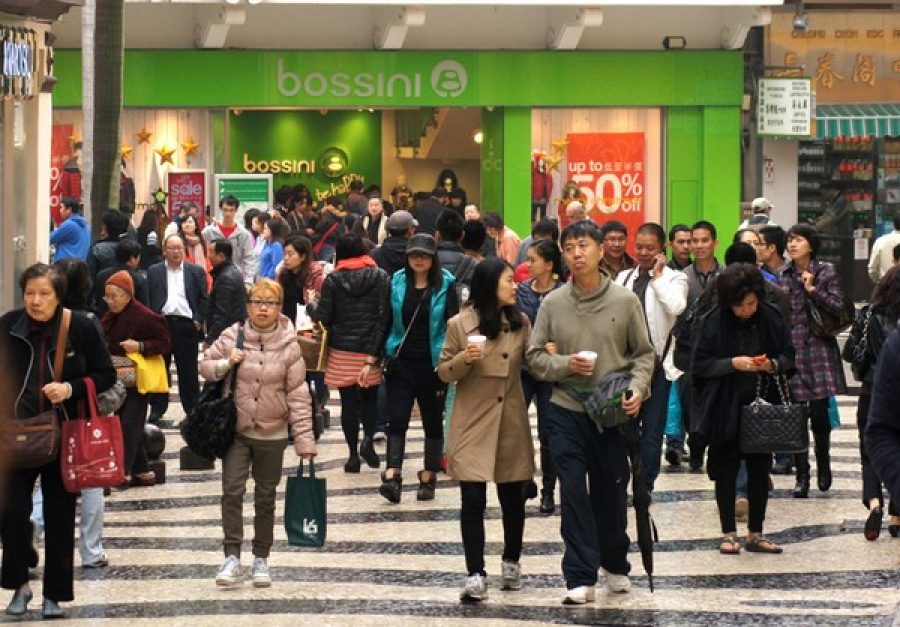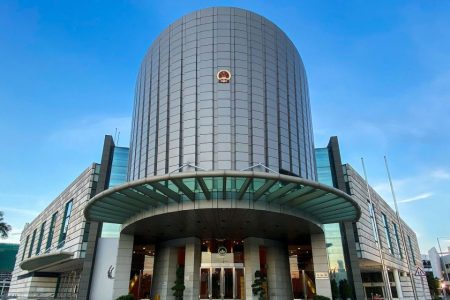Macau’s Gini coefficient in 2011 stood at nearly 0.40, the international warning signal, thus the government should come up with measures to tackle income inequality issues such as by subsidising the salaries of low-income employees and speeding upthe construction of public housing flats, Lao Chi Ngai, a lecturer at the University of Macau (UM) said Sunday.
Among other socio-economic data, the Gini coefficient measures the inequality among different levels of income. While a coefficient of zero expresses perfect equality (everyone earns the same), a coefficient of 1 denotes total inequality (one person earns all the income).
Talking to reporters on the sidelines of a local book fair, Lao presented the research findings conducted by a working group from the Macau Economics Association, which he heads, about the widening income gap between the city’s rich and the poor.
Lao said that based on official socio-economic statistics released by the government in 2011, his association’s estimate of the Gini coefficient in that year reached nearly 0.40, which he said was the international warning level as defined by the United Nations (UN).
The government has not published updated figures on the local Gini coefficient since 2008, when it stood at 0.38.
Lao said his association estimates that the coefficient amounted to 0.35 that year.
A lower Gini coefficient indicates a more equal income or wealth distribution, while a higher coefficient indicates a more unequal distribution.
“According to our findings, the gap between the rich and the poor [in the city] is now larger… the distribution of wealth has become more unequal … When the Gini coefficient increases, the gap between the rich and the poor increases as well… when the gap increases it will possibly impact the stability of society,” Lao said, adding that the index was now estimated by his association to be near the warning signal of 0.40, based on a UN-defined standard.
Lao also said that, based on the association’s research, the difference in the quotient between Macau’s top 20 percent earners and the lowest 20 percent, known as the income quintile share ratio, was estimated to have increased by 1.13 points between 2007 and 2011.
The association estimates that it stood at 8.17 in 2007/08 and at 9.30 in 2011.
“This ratio also shows the gap between the rich and the poor has become larger,” Lao was quoted by The Macau Post Daily as saying.
According to Eurostat, the income quintile share ratio or the S80/S20 ratio is a measure of the inequality of income distribution. It is calculated as the ratio of total income received by the 20 percent of the population with the highest income (the top quintile) to that received by the 20 percent of the population with the lowest income (the bottom quintile).
“It is very difficult for any government to tackle the matter…, however the [local] government should come up with measures [to prevent the income gap from expanding] such as by increasing the support it gives to disadvantaged groups in the city including providing low-income employees with a subsidy and speeding up the construction of public housing flats,” Lao said.
Lao also said that he believed that the setting-up of a statutory minimum wage would be one way of reducing the widening income gap between the rich and the poor.
The government has proposed that the minimum wage should be set somewhere between 23 to 28 patacas per hour but only for cleaners and caretakers hired by property management companies.
Macau is the only jurisdiction in China that still does not have a statutory minimum wage – unlike cities in the mainland, Hong Kong and Taiwan.(Macaunews)






